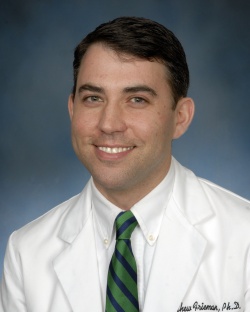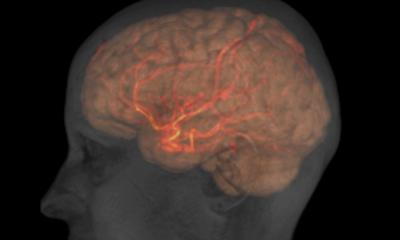Therapy
First-ever possible treatments for MERS
As the South Korean epidemic of Middle East Respiratory Syndrome (MERS) continues unabated, researchers have raced to find treatments for the deadly virus, which has killed more than 400 people since it was first discovered three years ago in Saudi Arabia.

Now, University of Maryland School of Medicine scientists and Regeneron Pharmaceuticals, Inc., have discovered and validated two therapeutics that show early promise in preventing and treating the disease, which can cause severe respiratory symptoms, and has a death rate of 40 percent. These therapeutics are the first to succeed in protecting and treating animal models of the MERS virus. The study appears today in the latest issue of the journal Proceedings of the National Academy of Sciences (PNAS).
“While early, this is very exciting, and has real potential to help MERS patients,” says a lead researcher on the study, Matthew B. Frieman, PhD, an assistant professor of microbiology and immunology at the University of Maryland School of Medicine (UM SOM). “We hope that clinical study will progress on these two antibodies to see whether they can eventually be used to help humans infected with the virus.”
The two antibodies, REGN3051 and REGN3048, showed an ability to neutralize the virus. This research, done in collaboration with Regeneron, a biopharmaceutical company based in Tarrytown, New York, used several of the company’s proprietary technologies to search for and validate effective antibodies targeting the virus.
MERS was first discovered in 2012 in Saudi Arabia. It appears that the disease spread to humans from camels, who may themselves been infected by bats. Research has shown that it is similar to Severe acute respiratory syndrome (SARS); both are caused by Coronaviruses, both cause respiratory problems, and both are often fatal.
The paper also announced the development a novel strain of mice, which will help scientists understand the disease and look for treatments. This work relied on Regeneron’s VelociGene technology to create partially humanized mice that can be infected with MERS.
“Mice are typically not susceptible to MERS,” said Prof. Frieman, who is an expert on both MERS and SARS, as well as other emerging viruses. “This new mouse model will significantly boost our ability to study potential treatments and help scientists to understand how the virus causes disease in people.”
The South Korean outbreak began last month when a traveler returned from Saudi Arabia, and infected many people before officials realized he had the disease. So far, around 180 people have been infected in South Korea, and nearly 30 have died.
“Prof. Frieman’s work provides the first glimmer of hope that we can treat and cure this threatening virus,” said Dean E. Albert Reece, MD, PhD, MBA, who is also the vice president for Medical Affairs, University of Maryland, and the John Z. and Akiko K. Bowers Distinguished Professor and Dean of the School of Medicine. “I know that they will continue to work hard to see whether these compounds can take the next steps to clinical trials.”
Source: University of Maryland School of Medicine
30.07.2015





